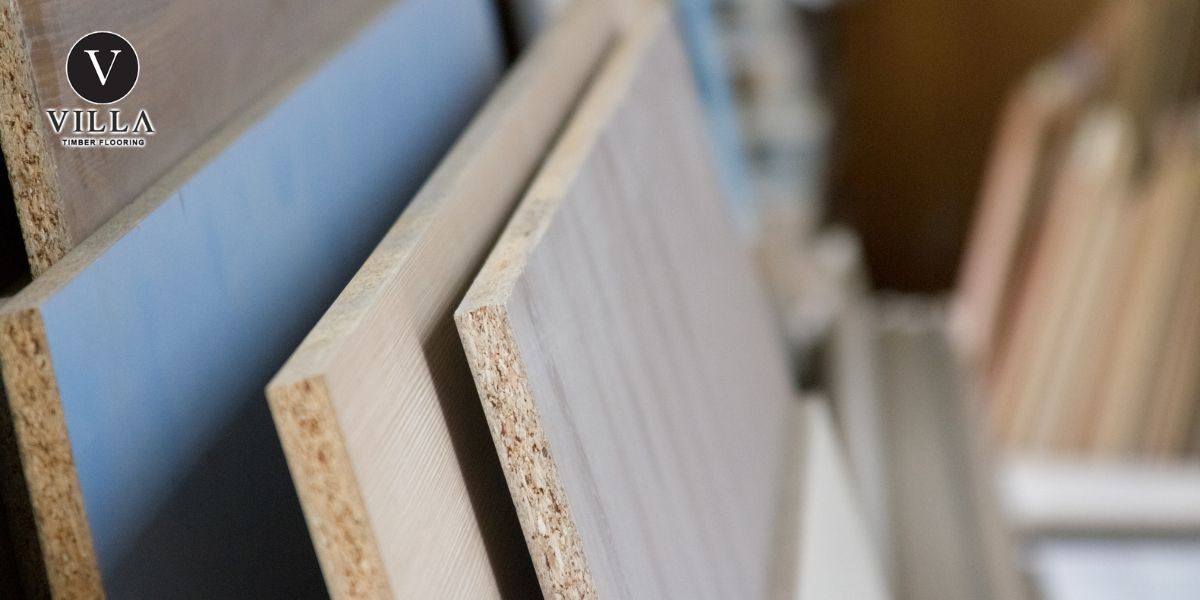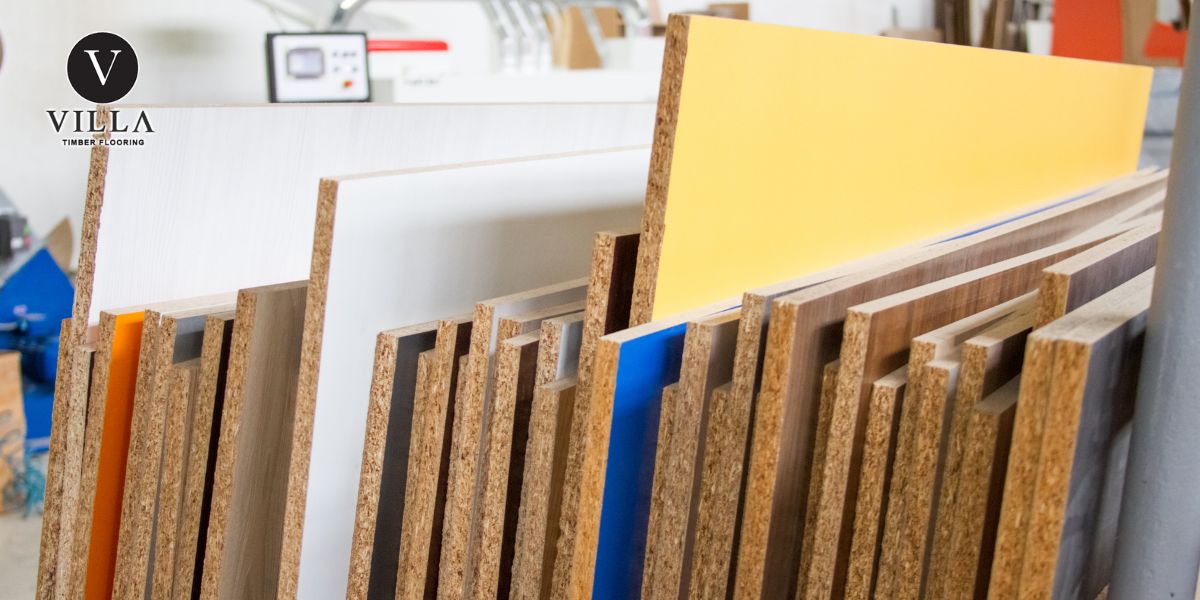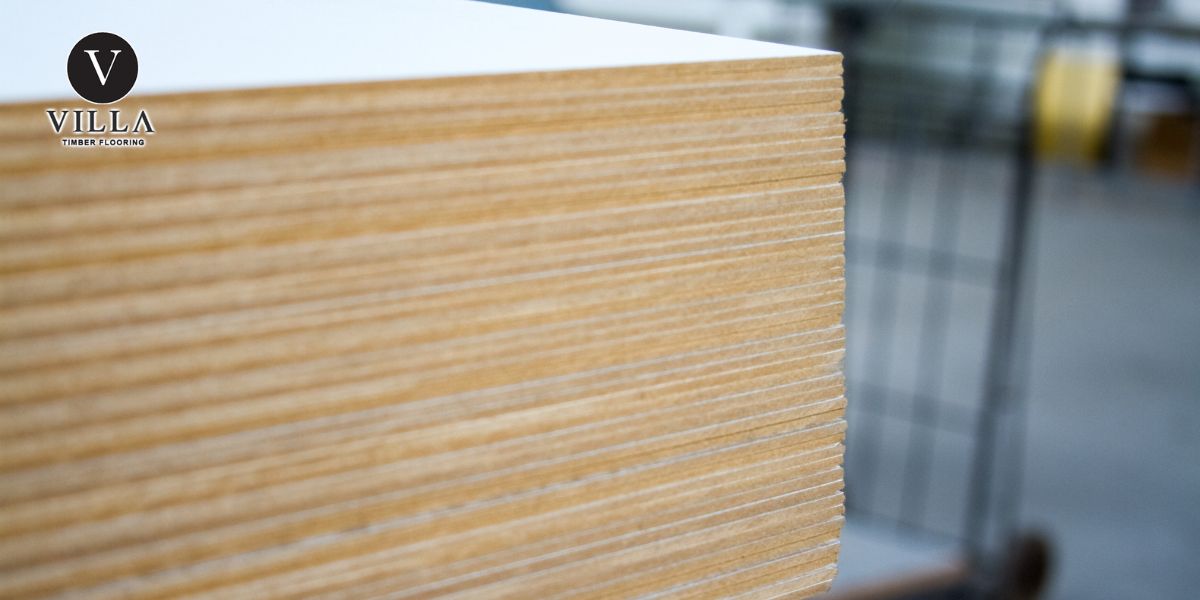Solid Wood Flooring Thickness Guide
Saturday, 31/08/2024
Administrator
758
31/08/2024, Administrator
758
Choosing solid wood flooring based on its thickness is an important decision because it affects durability, load-bearing capacity, and the style of your living space. Let's explore the thickness of solid wood flooring and tips for selecting the right thickness with Timber Villa through the following article.
1. Why is the Thickness of Wood Flooring Important?
The thickness of solid wood flooring not only affects its aesthetics but also its quality and lifespan. Thicker flooring offers better load-bearing capacity, reduces warping or cracking, especially in high-traffic areas. Thick wood floors also provide good sound and thermal insulation, keeping your living space warm in winter and cool in summer, especially in noisy areas. Aesthetic appeal is also enhanced with thicker wood floors, bringing elegance and increasing the value of your home. Lastly, thick wood floors are easier to maintain; scratched surfaces can be easily polished or replaced without losing their original beauty.

2. How Thick Should Solid Wood Flooring Be?
When choosing solid wood flooring, thickness is an important factor to consider. Timber Villa shares insights on the ideal thickness of solid wood flooring to help you get a better overview:
2.1 15mm
15mm is a popular choice for many families. This thickness is ideal for many spaces due to its balance between durability and cost. 15mm thick flooring is generally lighter and easier to install. It is also more affordable than thicker flooring, helping consumers save costs. Despite this, 15mm thick flooring still ensures good sound insulation and moisture resistance.
2.2 18mm
18mm is often considered a premium option for those who want to ensure maximum quality and durability. With an 18mm thickness, wood flooring provides superior load-bearing capacity, helping to avoid warping and scratches. It also offers better sound and thermal insulation, making your living space more comfortable.

3. Tips for Choosing Solid Wood Flooring Based on Thickness
Knowing how to choose solid wood flooring based on thickness will help you make the right decision. Here are some useful tips:
3.1 Determine the Purpose of Use
Where will the solid wood flooring be used in your home? The living room, bedroom, or outdoor area? The intended use will influence the choice of flooring thickness. If you're looking for flooring for the living room or dining room, where there is high foot traffic, you should choose thicker flooring like 18mm to ensure durability and load-bearing capacity. Conversely, if the flooring is for a less trafficked bedroom, 15mm thick flooring may be a more reasonable choice. If you're installing wood flooring for a store or office, choosing thicker flooring will help maintain appearance and quality over time.
3.2 Budget
Budget is an important factor that cannot be overlooked when choosing solid wood flooring. The price of solid wood flooring depends on thickness, material, and brand. Before making a decision, compare the prices of the solid wood flooring options you're considering. If your budget is limited, 15mm thick flooring may be a more reasonable choice that still ensures durability and aesthetics. However, if you have a good budget and want to make a long-term investment, 18mm thick flooring will be a wise choice. It will offer higher value and better durability over time.
3.3 Decor Style
The interior style of your home will also influence the choice of solid wood flooring. If your home has a modern style, 15mm thick flooring may fit the overall design without losing beauty. However, if you want to create more prominence and modernity, 18mm thick flooring will be an excellent choice. In case your home has a classic style, 18mm thick wood flooring will bring more elegance and sophistication, enhancing your living space.
3.4 Sound and Insulation
Sound insulation is also an important factor in choosing solid wood flooring. If you live in a noisy area or have young children, carefully consider the thickness of the flooring. Thicker wood flooring generally provides better sound insulation, helping to reduce noise from outside and between floors. This will certainly give you a quiet and relaxing living space. If you choose 15mm thick wood flooring, you can consider adding an underlay to improve sound reduction.
3.5 Surface Adjustment
The surface of the wood flooring can also affect the choice of thickness. Some surface types may require thicker wood flooring to ensure durability. If you choose a smooth surface, 15mm thick wood flooring can be a safe choice. These surfaces are often easy to clean and maintain. For rough or patterned surfaces, choosing thicker wood flooring will help enhance durability and scratch resistance.
3.6 Maintenance Capability
Finally, you need to consider the maintenance and care of the wood flooring when choosing its thickness. Thicker wood flooring is generally easier to maintain and has a longer lifespan, helping you save costs in the future. You can easily repair or reinstall it without worrying about damaging the floor's structure. Conversely, thinner wood flooring is more likely to be damaged quickly and may require more effort to maintain.

We hope that through this article, you will find useful tips for choosing the most suitable solid wood flooring for your home. If you need to purchase quality solid wood flooring at affordable prices, please contact Timber Villa for the most professional service.
VILLA TIMBER FLOORING & RENOVATION PTY LTD(AUSTRALIA)
Tel: (03) 9191 9898
Mobile: 0434 331 642 (Quang) - 0422 879 868 (Vinh Pham)
Email: inquiry@timbervilla.au
Address: 298 Canterbury Road, Surrey Hills, VIC 3127
VILA WOODEN FURNITURE JOINT STOCK COMPANY (VIET NAM)
Address: 133 Nguyen Nhan, Hoa Tho Dong Ward, Cam Le District, Da Nang City, Vietnam
Hotline: 0905 612 637
Tax: 0401929279
Email: inquiry@timbervilla.au
-
 What is Thermally Modified Wood Flooring? Advantages and Disadvantages09/11/2024
What is Thermally Modified Wood Flooring? Advantages and Disadvantages09/11/2024 -
 Use the correct rubber underlay for your wood floor installations09/11/2024
Use the correct rubber underlay for your wood floor installations09/11/2024 -
 Cost To Install Wood Flooring09/11/2024
Cost To Install Wood Flooring09/11/2024 -
 5 Simple Steps to Install Herringbone Wood Flooring09/11/2024
5 Simple Steps to Install Herringbone Wood Flooring09/11/2024 -
 Kaindl Imported Wood Flooring – A Premium Choice for Your Home05/11/2024
Kaindl Imported Wood Flooring – A Premium Choice for Your Home05/11/2024 -
 Choosing the best Malaysian wood flooring for your home05/11/2024
Choosing the best Malaysian wood flooring for your home05/11/2024 -
 How to Choose Bedroom Flooring05/11/2024
How to Choose Bedroom Flooring05/11/2024 -
 Exploring Premium Black Core Wood Flooring05/11/2024
Exploring Premium Black Core Wood Flooring05/11/2024 -
 Exploring Patterned Wood Flooring29/10/2024
Exploring Patterned Wood Flooring29/10/2024 -
 Comparison of Black Core and Green Core Industrial Wood Flooring29/10/2024
Comparison of Black Core and Green Core Industrial Wood Flooring29/10/2024




















